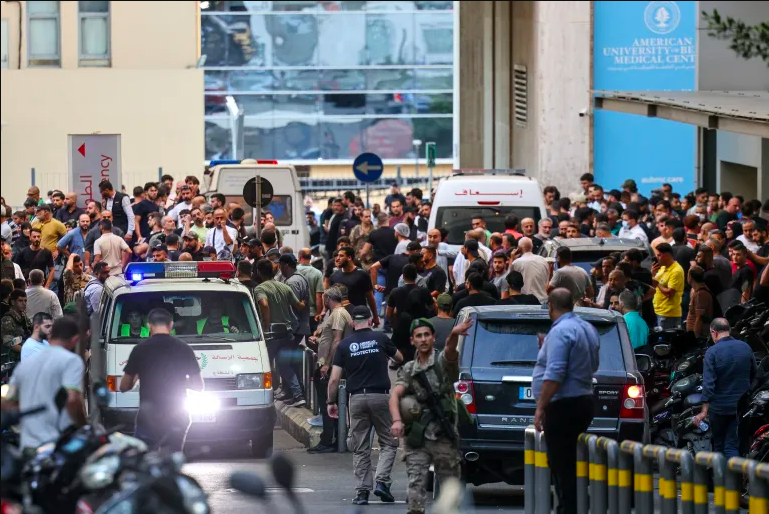
Published 09/17/2024 17:50 | Edited 09/17/2024 18:12
A series of simultaneous explosions of pagers used by Hezbollah members have hit several areas in Lebanon, resulting in at least nine deaths, including a child, and more than 2,750 injuries. The explosions came amid rising tensions in the region, with Hezbollah blaming Israel for the attack.
Video of one of the explosions, captured at al-Zahraa hospital in Beirut, shows Civil Defense rescue teams carrying an injured man. The incident highlighted the fragility of security in the Lebanese capital and other areas where the blasts occurred.
Scale and impact of explosions
The explosions were not limited to Lebanon. Fourteen people were also injured in Syria, where Hezbollah maintains an active presence. The communications devices that exploded were acquired by Hezbollah after the group’s leader banned the use of cellphones in February this year, citing concerns about tracking by Israeli intelligence.
Experts believe the explosions may have been the result of a sophisticated sabotage operation, possibly involving tampering with the devices before they were imported into Lebanon. “It is a long-term operation, which may have involved infiltration of the supply chain,” Hamze Attar, a defense researcher, told Aljazira in an interview.
Possible infiltration and sabotage
The explosions have also raised questions about the technological capabilities involved. Rich Outzen, a senior fellow at the Atlantic Council, raised the possibility that the devices were compromised during the manufacturing or export process. “Remote insertion of malware or direct placement of explosives are real possibilities,” he said.
Yehoshua Kalisky of the Institute for National Security Studies in Tel Aviv suggested the blasts may have been caused by an electronic pulse that disabled the pagers. “This is not a random action. It was deliberate and highly planned,” Kalisky said.
Reactions and consequences
Hezbollah and other allies in the region view the blasts as a significant breach of their operations. An anonymous Hezbollah official said the pagers were a new brand but did not know how long they had been in use. “Hezbollah will need to reevaluate its means of communication,” said Mohamad Elmasry, a professor at the Doha Institute, indicating that the group was already using messengers to avoid tracking.
The incident comes at a critical time in the Middle East, with ongoing fighting between Israel and Hezbollah-allied groups such as Hamas. Since October, Israel and Hezbollah have been exchanging fire on Lebanon’s borders, further escalating regional tensions.
Implications for regional conflict
Military experts say the explosions could be a prelude to a larger military operation against Hezbollah. “The disruption of communications could be a first step toward a broader escalation,” said Samuel Ramani of the Royal United Services Institute. Israel has not yet commented on the explosions, but sources in the country say senior officials are meeting to discuss possible responses to retaliatory attacks by Hezbollah.
Meanwhile, the US government has said it had no involvement in the explosions. “We are closely monitoring the incident, but we had no role in this incident,” said State Department spokesman Matthew Miller.
As investigations continue, the Hezbollah pager incident deepens the complexity of the Middle East conflict, posing new challenges to already tense relations between Israel, Hezbollah and their respective allies.
With information from Aljazira
Source: vermelho.org.br

